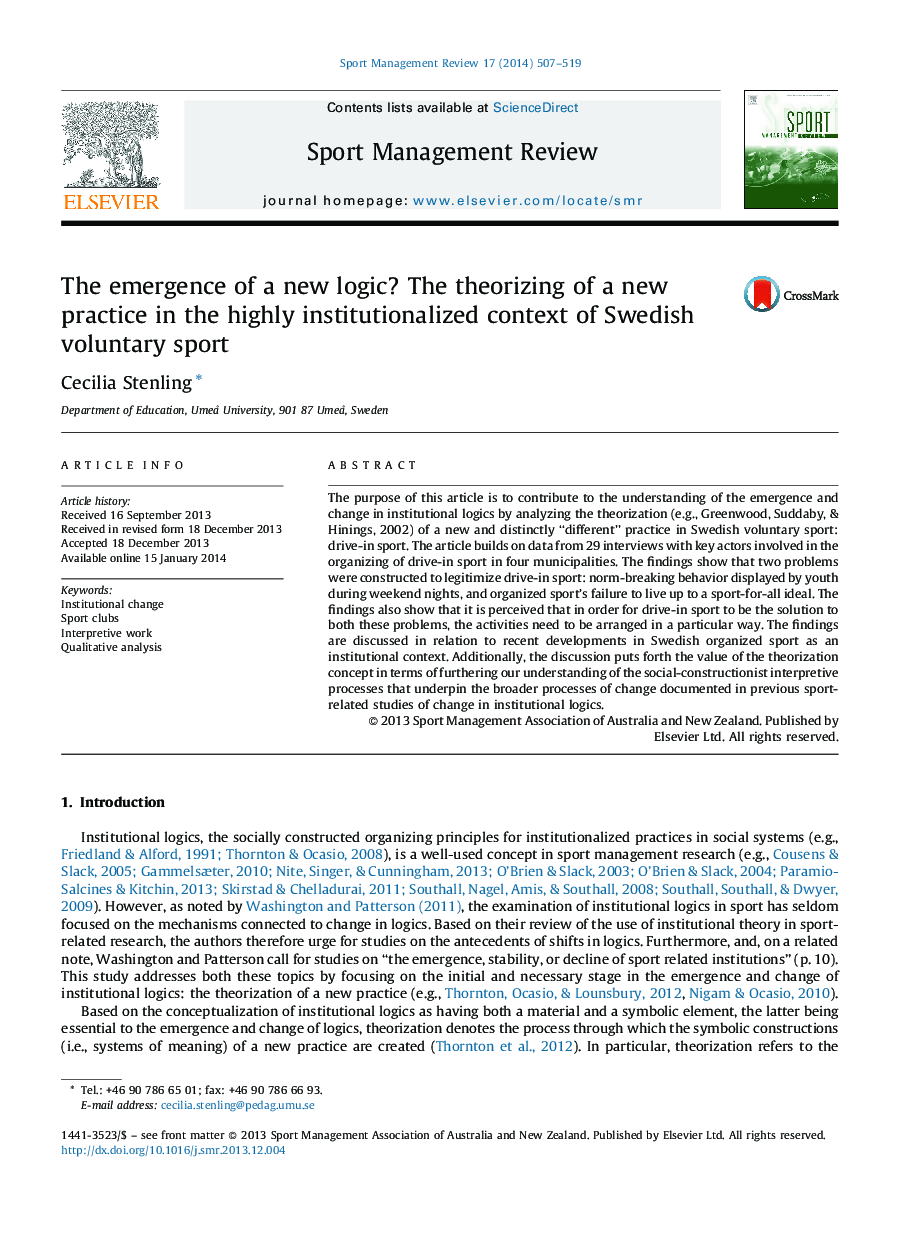| Article ID | Journal | Published Year | Pages | File Type |
|---|---|---|---|---|
| 140826 | Sport Management Review | 2014 | 13 Pages |
•Two problems were constructed to legitimize drive-in sport.•Three principles were prescribed as the ideal way to organize drive-in sport.•Drive-in sport was legitimized through social constructionist, interpretive processes.•The theorization was productive of and produces societal ideals, norms, and values.•Theorization is a necessary precursor to emergence and change in logics.
The purpose of this article is to contribute to the understanding of the emergence and change in institutional logics by analyzing the theorization (e.g., Greenwood, Suddaby, & Hinings, 2002) of a new and distinctly “different” practice in Swedish voluntary sport: drive-in sport. The article builds on data from 29 interviews with key actors involved in the organizing of drive-in sport in four municipalities. The findings show that two problems were constructed to legitimize drive-in sport: norm-breaking behavior displayed by youth during weekend nights, and organized sport's failure to live up to a sport-for-all ideal. The findings also show that it is perceived that in order for drive-in sport to be the solution to both these problems, the activities need to be arranged in a particular way. The findings are discussed in relation to recent developments in Swedish organized sport as an institutional context. Additionally, the discussion puts forth the value of the theorization concept in terms of furthering our understanding of the social-constructionist interpretive processes that underpin the broader processes of change documented in previous sport-related studies of change in institutional logics.
